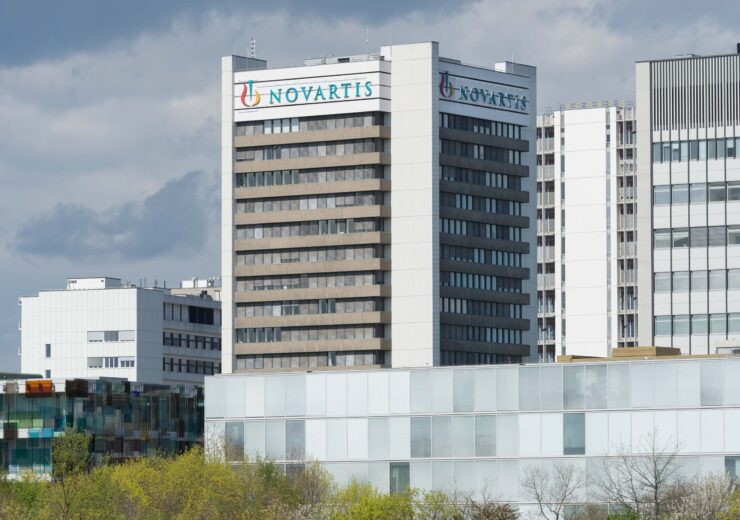The Swiss pharmaceutical firm also secured Rare Pediatric Disease Designation for the treatment of C3 glomerulopathy (C3G)

Novartis tower with surrounding buildings. (Credit: Novartis AG.)
Novartis has received the US Food and Drug Administration (FDA) Breakthrough Therapy Designation (BTD) for its investigational oral therapy iptacopan (LNP023) in treating paroxysmal nocturnal hemoglobinuria (PNH).
The Swiss pharmaceutical firm also secured the Rare Pediatric Disease (RPD) Designation for the treatment of C3 glomerulopathy (C3G).
FDA grants rare pediatric designation for serious or life-threatening diseases that primarily affect people aged 18 years or younger, in less than 200,000 people.
C3G is an ultra-rare and severe form of primary glomerulonephritis, characterised by complement dysregulation, and is associated with poor prognosis.
Iptacopan is an advanced, orally administered, highly selective factor B inhibitor of the alternative complement pathway.
The drug is currently studied in treating PNH, C3G and various other renal conditions where significant unmet needs exist, including IgA nephropathy (IgAN), atypical hemolytic uremic syndrome (aHUS), and membranous nephropathy (MN).
FDA BTD is based on interim results from two ongoing Phase 2 iptacopan studies
The US regulatory agency granted BTD to iptacopan based on positive interim results from two ongoing Phase 2 studies, in which iptacopan showed positive results.
In the clinical studies, iptacopan showed benefits for both patients who remained anaemic and dependent on transfusions regardless of standard of care anti-complement treatment and monotherapy in anti-C5 naïve PNH patients.
PNH is a rare and life-threatening blood disorder characterised by complement-driven hemolysis, thrombosis and impaired bone marrow function, resulting in anemia, fatigue and other debilitating symptoms that can impact patients’ quality of life.
A large volume of PNH patients remain anemic and dependent on transfusions, despite current standard of care, anti-C5 therapy eculizumab or ravulizumab.
Around 50% of C3G patients progress to end-stage renal disease (ESRD) within 10 years, and 50 to 70% experience disease recurrence post kidney transplant, said the company.
Iptacopan has received the orphan drug designations from the FDA and EMA in C3G and PNH, along with EMA PRIME designation for C3G, and EMA orphan drug designation in IgAN, based on disease prevalence and the positive interim data from Phase 2 studies.
Novartis said that iptacopan offers the first complement pathway inhibitor to reduce disease progression in various complement-driven diseases, and is planning to commence Phase 3 studies in several indications.
